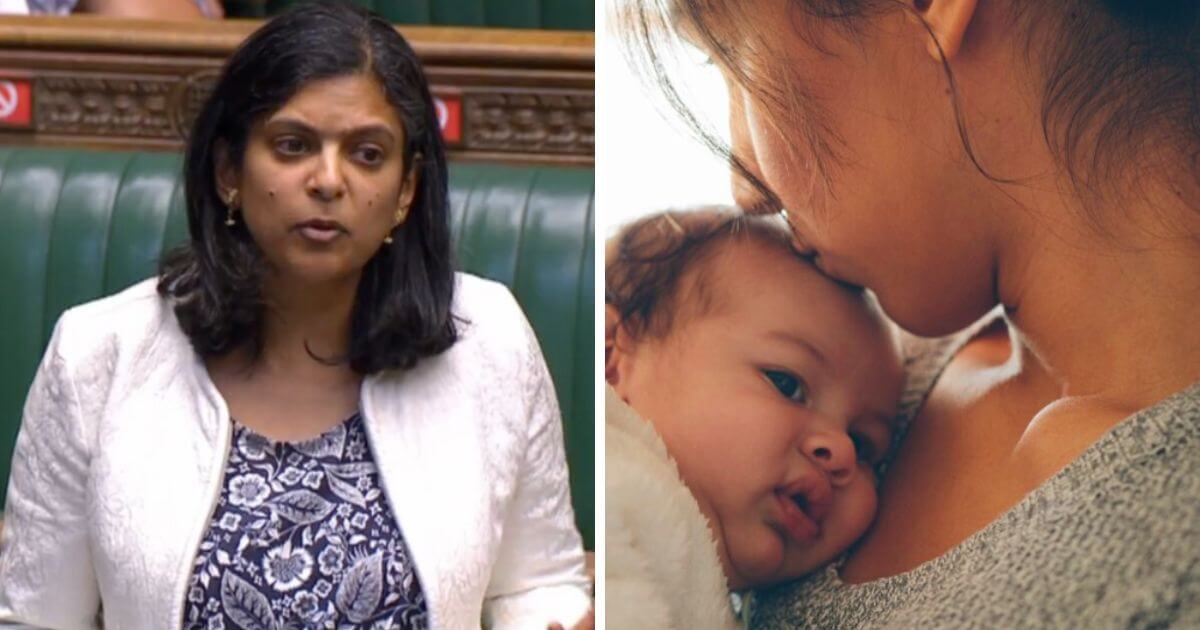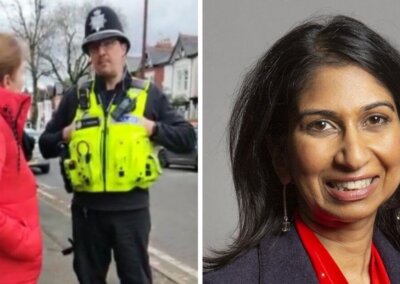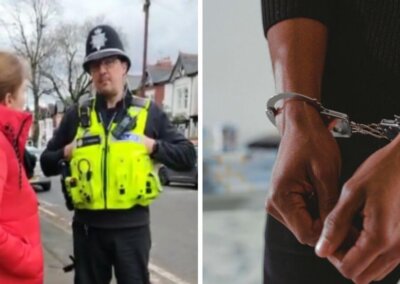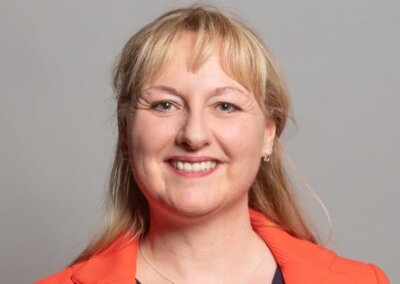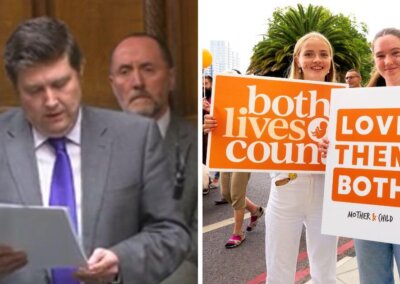An amendment to the Public Order Bill that would criminalise those who offer help and support to women, as well as those who peacefully pray, within 150m of an abortion clinic did not go to vote in the House of Commons.
The amendment, introduced by Labour MP Rupa Huq, would make it illegal to “interfere with any person’s decision to access, provide, or facilitate the provision of abortion services in that buffer zone”.
Huq did not take her amendment to a vote, but she will have another opportunity to try and pass a similar law when the Bill returns to the Commons at a later stage.
Shockingly, the amendment defines ‘Interfere with’ very broadly, and would make it illegal “to influence”, “[inform] or [attempt] to inform about abortion services”, and “advise or persuade” anyone seeking to have an abortion at a clinic.
Huq argued that such legislation is needed to protect women outside abortion clinics, yet did not cite evidence for her claims. In response, Natalie Elphicke MP argued that laws already exist to address intimidation and assault, and that local authorities also have powers to introduce exclusion zones where needed. She argued that Huq’s amendment was unnecessary to address any harm that might be caused by pro-life vigils, since such harm could be addressed under current laws.
Additionally, a number of difficulties were raised about the specifics of Huq’s amendment. Elphicke suggested the amendment was unclear as to whom it applies, citing the example of an abortion clinic in East London where, within 150 metres, there is a school, a doctors’ surgery, a midwifery centre and a number of private homes. She said that abortion may be discussed in any of these settings, such as at a doctors’ surgery, and it would seem that Huq’s amendment as written would criminalise people for these discussions.
Speaking for the Government, Home Office Minister, Kit Malthouse MP, raised similar concerns, pointed to existing laws that protect women from harassment and cited the Government’s 2018 review into whether censorship zones were needed.
National buffer zones would not be a proportionate response
Since it conducted a review on the introduction of national censorship zones outside abortion clinics in England and Wales in 2017 and 2018, the Government has maintained that there already exists legislation to address harassment and intimidation. The then Home Secretary, Sajid Javid said:
“…introducing national buffer zones would not be a proportionate response, considering the experiences of the majority of hospitals and clinics, and considering that the majority of activities are more passive in nature. In making my decision, I am also aware that legislation already exists to restrict protest activities that cause harm to others”.
As the Home Office Minister, Kit Malthouse, once again reiterated these arguments that the Government does not consider there to be a case for national censorship zones, Rupa Huq did not take her amendment to a vote, and it was withdrawn.
However, her comments suggested she will bring the matter back to the Public Order Bill when it returns to the Commons at a later date.
Right To Life UK spokesperson, Catherine Robinson, said: “It is likely that Huq did not take her amendment to vote because she does not have the Government’s support. The Government remains sceptical of the need for such legislation, which is good for pro-lifers who wish to offer women outside abortion clinics an alternative to abortion. However, Huq was clear that the amendment is likely to be re-tabled at Report stage, so, despite the lack of evidence in its favour, it will have to be rebutted once again”.


